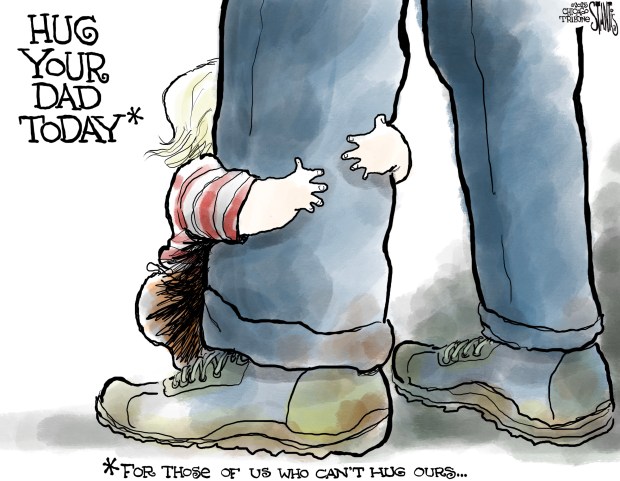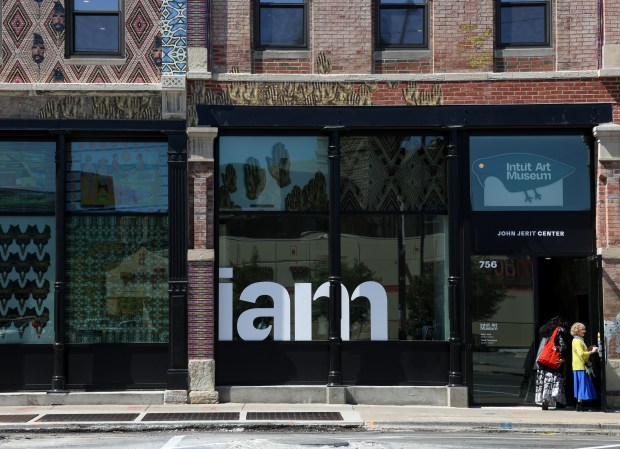With nearly 100,000 Puerto Ricans living in Chicago, Puerto Rican culture is intertwined with the city’s identity. It can be seen in the streets of Humboldt Park where the Puerto Rican Fest is celebrated every year and the Puerto Rican flag is proudly displayed. Puerto Ricans and the Hispanic community as a whole have contributed to the city’s identity and economy for decades. For example, Little Village, home to 26th Street, is the second highest-grossing street in all of Chicago with a thriving Hispanic community.
The city’s rich Hispanic culture is a reminder of the powerful story of Chicago and the U.S. We are a melting pot that is defined and strengthened by our diversity. For Boricuas, it’s also a testament that Puerto Rican culture is American culture.
Puerto Ricans continue to influence many elements of American culture. The island has left its mark on America’s favorite pastime, with five Puerto Rican players in the Baseball Hall of Fame. Puerto Rican culture also contributes to Broadway shows and hit music, with singer Bad Bunny winning three Grammy Awards, as well as many other aspects of American life. For more than a century, the island and the U.S. have evolved together but not equally.
The reality is that the annexation of Puerto Rico occurred more than 125 years ago, and Puerto Rico has been a possession of the U.S. ever since. Despite the island’s residents gaining U.S. citizenship in 1917, the U.S. Supreme Court authorized the unequal treatment of Puerto Rico by differentiating between incorporated and unincorporated territories in a series of cases known as the “Insular Cases.” Nevertheless, we can break the chains of colonialism only by giving the people of Puerto Rico a binding say on the island’s status.
For decades, resolving the island’s unincorporated territory status had seen little progress. This has changed with the historic momentum and consensus in Congress over the last few years. During the 117th Congress, we saw the Puerto Rico Status Act pass the House with bipartisan support. In the 118th Congress, the bill was reintroduced in both the House and Senate, even gaining the support of Senate Majority Leader Charles Schumer and 26 other Senate Democrats. Notably, Illinois U.S. Sens. Dick Durbin and Tammy Duckworth have yet to commit their support, despite their past support for legislation to resolve the island’s political status.
The bill includes the three nonterritorial status options that the Department of Justice has unequivocally identified for Puerto Rico: statehood, independence and independence with free association. This legislation is a win for all Puerto Ricans, regardless of how the island may ultimately vote, offering multiple paths to end its unincorporated territory status.
Presented under the proposal is the strongest offer possible for supporters of independence with free association, which would result in Puerto Rico becoming an independent sovereign country. Though the 3.2 million Puerto Ricans that currently hold U.S. citizenship and reside on the island could remain U.S. citizens, it is a risky proposition as both the Puerto Rican and U.S. governments would need to agree to continue offering citizenship through a compact after the island achieves independence. Since the majority of Puerto Ricans wish to retain their U.S. citizenship, free association might not be the solution out of the territory status many have incorrectly assumed would be the new version of the “Estado Libre Asociado.”
Should voters select statehood, the millions of U.S. citizens living in Puerto Rico would finally become full and equal participants in American society by becoming a part of the U.S. and not merely its possession. The island’s residents would gain the same protection under federal laws as all U.S. citizens living in Chicago and across the 50 states. This means voting representation at the federal level and increased federal benefits for health care, food and a greater economic future. While only the statehood option offers increased economic prosperity and guarantees U.S. citizenship, every single option would break the yoke of colonialism for the first time in the island’s history.
As the 51st state, Puerto Rico would be defended from malicious nations such as China and Russia, which are acting increasingly aggressive in the Caribbean and Latin America. The U.S. would be able to strengthen its own national security due to Puerto Rico’s strategic location for supply chain logistics, trade and security operations. Economically, statehood would boost outside industry investment in the island and create well-paying jobs. By bolstering Puerto Rico’s economy, labor market and purchasing power, statehood would further increase interstate commerce between businesses on the island and stateside in communities such as Humboldt Park.
The 3.2 million U.S. citizens living in Puerto Rico deserve equal representation, voting power and protection under the laws of our country. Statehood is the best means to achieve full equality for Puerto Rico, but that choice ultimately belongs to Puerto Rico’s voters. Congress need only enact binding legislation to empower Puerto Ricans to choose their own political future.
During the recent Democratic National Convention in Chicago, the party platform endorsed the Puerto Rico Status Act as the best means to decolonize the island. Now we must continue the momentum in Congress to pass the Puerto Rico Status Act and urge Durbin and Duckworth to adhere to their past calls for the self-determination of Puerto Rico by Puerto Ricans by co-sponsoring the bill.
Martin Rivera is director of advocacy for the Puerto Rico Statehood Council. Previously, Martin was senior policy counsel for the National Hispanic Media Coalition and director of the Puerto Rico Federal Affairs Administration.
Submit a letter, of no more than 400 words, to the editor here or email letters@chicagotribune.com.




